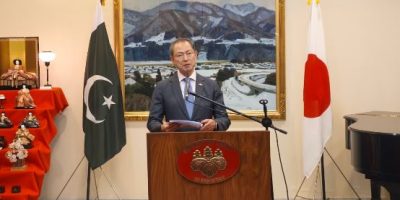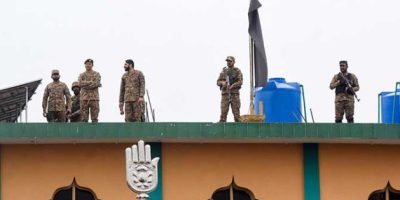World Humanitarian Day

Today, we join the United Nations and the international community in commemorating the World Humanitarian Day. We pay tribute to the sacrifices rendered by humanitarian workers in saving lives and providing support and protection to people affected by conflict, disasters and emergencies.
We commend the United Nations, its Office for Coordination of Humanitarian Affairs (OCHA) and other humanitarian organizations for their leadership in mobilizing and delivering assistance to civilians in need, despite challenges of access and restrictions.
We value the active role of and substantial contribution by the humanitarian community, in particular, the United Nations in responding to the unprecedented health and socio-economic impact of COVID-19.
We encourage the global community to uphold the principles of burden- and responsibility-sharing to support sustainable humanitarian responses in large refugee hosting countries. The protracted refugee situations continue to impact millions of lives and should be supported by the international community in every aspect.
Pakistan and its people have shown exemplary generosity, compassion and hospitality in hosting more than 3 million Afghans for over 4 decades. We are thankful to our partners, especially the United Nations High Commissioner for Refugees (UNHCR), for helping us in taking care of Afghan Refugees.
On this occasion, we would once again urge the global humanitarian fraternity to do everything it can to ameliorate the worsening humanitarian situation in Indian Illegally Occupied Jammu & Kashmir (IIOJ&K) including call for lifting the year-long draconian military siege and provision of unfettered access and assistance to Kashmiri people in dire need of healthcare.
We reiterate the need for evolving a strategic approach to address humanitarian emergencies, guided by the imperative of upholding international humanitarian law, preventing conflicts from eruption, and peacefully resolving long-standing disputes and conflicts.
Related News

Ambassador eyes deeper Japan-Pakistan bonds through youth, AI
ISLAMABAD, FEB 6 /DNA/ – Akamatsu Shuichi, Ambassador of Japan to Pakistan, has said thatRead More

‘Hideous, abhorrent act’: Condemnations pour in as Pakistan mourns imambargah attack
ISLAMABAD, FEB 6: Condemnations poured in after a suicide bomber targeted Imambargah Khadijah al-Kubra inRead More


Comments are Closed